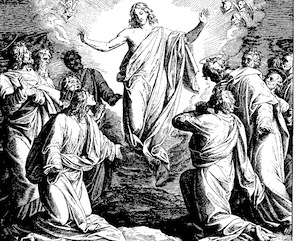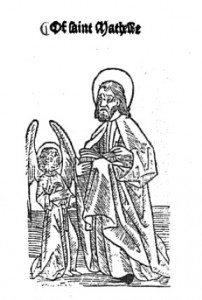Thoughts on Today’s Lessons for Sunday, May 12, 2013.
First Reading: Acts 1:1-11In these opening verses of the Acts of the Apostles, the author tells us that this is his second book, following after his first volume, the Gospel of Luke. Reflecting on the many appearances of Christ to his apostles between his resurrection and ascension into heaven 40 days later, Luke tells us that Jesus assured the disciples that God’s power would continue in them through baptism in the Holy Spirit, a mysterious idea that will become clear a few days later on the first Pentecost.
Psalm: Psalm 47
Another psalm of praise and joy, these verses celebrate God’s royal reign as mighty king. This image may seem strange to us as modern Americans, who gave up kings and royals centuries ago. We may smile at Britain’s royals and enjoy the pageantry of the wedding of William and Kate, but kings aren’t for us, we think. Still, the idea of an almighty ruler watching over us with love and justice can be reassuring in troubled times.
Second Reading: Ephesians 1:15-23
The idea of kingship comes up again in Paul’s letter to the people of Ephesus in ancient Anatolia (now Turkey), but here the ruling power is vested in the resurrected Christ, who sits at God’s right hand, far above all earthly rule, authority, power and dominion. Christ is the head of all things for the church; we are the body of Christ on earth. This awesome charge offers us the spirit of wisdom and revelation through Christ, and calls us to live as Jesus would have us live, working to bring in God’s kingdom on earth.
Gospel: Luke 24:44-53
Today’s readings began with the opening page of Acts, and they conclude with this Gospel, the final page of Luke. Try this: Read this Gospel, then go back and re-read the first lesson, and see how Luke’s words flow through. In the Gospel, Luke tells us of Jesus declaring that he is the Messiah foretold by the prophets, and that humanity’s sins will be forgiven though his resurrection. Acts opens the next chapter, empowering God’s people through the Holy Spirit to bring this good news to the world.


 First Reading:
First Reading: 